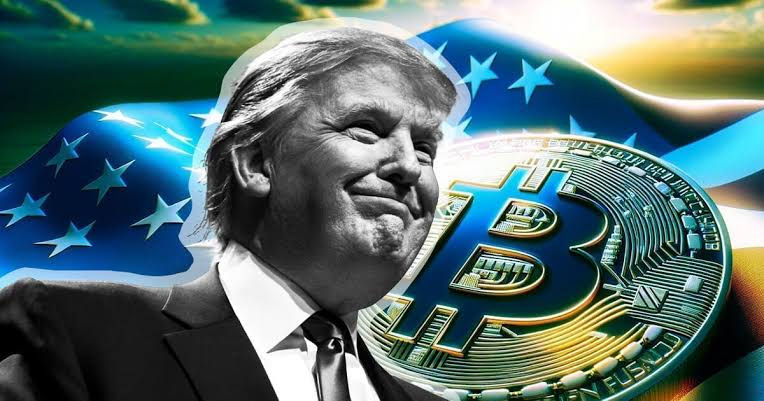How Trump’s Proposed Tariffs Could Impact the Crypto Market
- sidar kaya
- Nov 26, 2024
- 3 min read

In a recent post on his social media platform, Truth Social, U.S. President-elect Donald Trump announced plans to impose sweeping tariffs of 25% on trade products from Canada and Mexico, alongside an additional 10% tariff on imports from China. Framed as measures to combat issues such as drug trafficking and illegal immigration, these tariffs would continue until such problems are resolved. While the immediate implications are clear for global trade, the crypto market could also see significant effects.
Let’s explore how tariffs might ripple through traditional markets and why they often bring renewed interest in Bitcoin and other cryptocurrencies.
The Economics of Tariffs
Tariffs are designed to protect local industries by increasing the cost of imported goods. While this can encourage domestic production, it also tends to raise the price of goods for consumers. This inflationary effect reduces purchasing power and heightens economic tension, especially in nations directly targeted by the tariffs. In this case, Canada, Mexico, and China could see adverse effects on their currencies, potentially destabilizing their economies.
The U.S. dollar, which gained 0.4% following Trump’s tariff announcement, may strengthen further in the short term. However, higher tariffs often lead to broader trade tensions, which could destabilize the global economy and even erode confidence in traditional financial systems.
How Tariffs Fuel Bitcoin Interest
Historically, periods of economic uncertainty, such as trade wars or rising inflation, have seen increased interest in Bitcoin and other cryptocurrencies. Here’s why:
1. Bitcoin as a Hedge Against Inflation
Tariffs often lead to inflation as the cost of imported goods rises, causing overall price increases in the economy. Bitcoin, with its limited supply and decentralized nature, has become a popular hedge against inflation. During the U.S.-China trade war of 2018-2020, for instance, Bitcoin prices surged as investors sought alternatives to traditional assets that were affected by the economic turmoil.
2. Economic Uncertainty Drives Safe-Haven Investments
Tariff announcements and trade wars disrupt global markets, leading to volatility in stocks, bonds, and fiat currencies. In such uncertain times, Bitcoin is often viewed as a “safe-haven” asset, offering a degree of protection from the instability of traditional markets.
3. Increased Adoption Amid Financial Volatility
As people lose trust in traditional financial systems during trade wars, Bitcoin adoption tends to grow. This not only pushes Bitcoin prices higher but also drives broader awareness and participation in the crypto market.
Lessons From the Past: 2018-2020 Trade War
The U.S.-China trade war serves as a prime example of how economic uncertainty can boost Bitcoin. During that period, tariffs were raised on goods like technology and electric vehicles, creating tension in traditional markets. As a result, Bitcoin saw increased demand and significant price appreciation as investors looked for alternative ways to store value.
This relationship between inflation and Bitcoin growth is well-documented. A TradingView chart analyzing U.S. inflation rates and Bitcoin prices demonstrates a positive correlation—when inflation rises, so does Bitcoin interest and investment.
What This Means for Crypto Investors
If Trump’s proposed tariffs are implemented in 2025, we could see a repeat of past trends. Here’s what crypto investors should watch for:
• Bitcoin Demand Could Spike: Investors may flock to Bitcoin as a hedge against inflation and a refuge during heightened trade tensions.
• Increased Volatility in Altcoins: While Bitcoin often benefits from economic uncertainty, altcoins could experience heightened price volatility as traders shift focus.
• Boosted
Adoption: As inflation and economic uncertainty grow, more individuals and institutions may consider cryptocurrencies as viable alternatives to traditional assets.
A Window of Opportunity
Trump’s tariff proposals might create an environment of economic instability that could benefit the crypto market. At Fund The Future Capital, we believe this underscores the importance of understanding how macroeconomic events influence digital assets. As a venture capital firm focused on supporting innovation, we encourage both investors and entrepreneurs to stay informed and capitalize on opportunities during these transformative periods.
Final Thoughts
While tariffs are designed to address geopolitical and economic issues, they often have unintended consequences for global markets. For the crypto industry, these challenges can translate into growth as Bitcoin and other cryptocurrencies provide refuge from inflation and financial instability. Whether you’re a seasoned investor or new to the space, understanding these dynamics can help you navigate the ever-evolving crypto market.
Stay ahead of the curve with insights and updates from Fund The Future Capital. Together, let’s shape the future of finance.





Comments